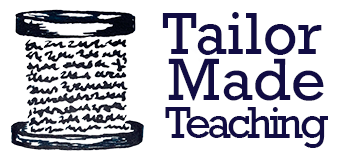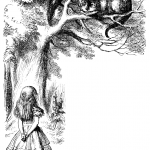
British Novels Which Have Added To The English Language
No. 3 A Study in Scarlet (Sherlock Holmes) by Sir Arthur Conan Doyle
Conan Doyle wrote 60 Sherlock Holmes stories. It doesn’t really matter which one you read as neither of the phrases these books have given the language actually appeared in his writing. You may as well start with the first: A Study in Scarlet. Written between 1887 and 1927, the stories are set in Victorian and Edwardian England and provide an interesting portrait of the manners and mores of the time – a time from which, arguably, many British stereotypes originated. Holmes is a great detective who solves many overcomplicated crimes with his partner, Dr Watson.
Themes Crime, detection, justice
Words and Phrases
Elementary, My dear Watson /ˌelɪˈment(ə)ri/ /maɪ/ /dɪə(r)/ /wɒtsʌn/ (humorous) to say something is straightforward, simple, obvious.
Holmesian (adj.) /ˈhəʊmzɪən/ characteristic of Sherlock Holmes, extremely perceptive. She has Holmesian powers of detection.
No shit, Sherlock! /nəʊ/ /ʃɪt/ /ˈʃɜː(r)lɒk/ (very informal) a sarcastic way of responding to someone’s obvious statement.
A: Hard night last night?
B: How’d you guess?
A: (nodding to a pile of empty bottles on the floor) Elementary, my dear Watson.
B: No shit, Sherlock!
Excerpt: From Chapter One
This was a lofty chamber, lined and littered with countless bottles. Broad, low tables were scattered about, which bristled with retorts, test-tubes, and little Bunsen lamps, with their blue flickering flames. There was only one student in the room, who was bending over a distant table absorbed in his work. At the sound of our steps he glanced round and sprang to his feet with a cry of pleasure. “I’ve found it! I’ve found it,” he shouted to my companion, running towards us with a test-tube in his hand. “I have found a re-agent which is precipitated by hæmoglobin, and by nothing else.” Had he discovered a gold mine, greater delight could not have shone upon his features.
“Dr. Watson, Mr. Sherlock Holmes,” said Stamford, introducing us.
“How are you?” he said cordially, gripping my hand with a strength for which I should hardly have given him credit. “You have been in Afghanistan, I perceive.”
“How on earth did you know that?” I asked in astonishment.
“Never mind,” said he, chuckling to himself. “The question now is about hæmoglobin. No doubt you see the significance of this discovery of mine?”
“It is interesting, chemically, no doubt,” I answered, “but practically—
“Why, man, it is the most practical medico-legal discovery for years. Don’t you see that it gives us an infallible test for blood stains? Come over here now!” He seized me by the coat-sleeve in his eagerness, and drew me over to the table at which he had been working. “Let us have some fresh blood,” he said, digging a long bodkin into his finger, and drawing off the resulting drop of blood in a chemical pipette. “Now, I add this small quantity of blood to a litre of water. You perceive that the resulting mixture has the appearance of pure water. The proportion of blood cannot be more than one in a million. I have no doubt, however, that we shall be able to obtain the characteristic reaction.” As he spoke, he threw into the vessel a few white crystals, and then added some drops of a transparent fluid. In an instant the contents assumed a dull mahogany colour, and a brownish dust was precipitated to the bottom of the glass jar.
“Ha! ha!” he cried, clapping his hands, and looking as delighted as a child with a new toy.
“What do you think of that?”
“It seems to be a very delicate test,” I remarked.
“Beautiful! beautiful! The old guaiacum test was very clumsy and uncertain. So is the microscopic examination for blood corpuscles. The latter is valueless if the stains are a few hours old. Now, this appears to act as well whether the blood is old or new. Had this test been invented, there are hundreds of men now walking the earth who would long ago have paid the penalty of their crimes.”
“Indeed!” I murmured.
“Criminal cases are continually hinging upon that one point. A man is suspected of a crime months perhaps after it has been committed. His linen or clothes are examined and brownish stains discovered upon them. Are they blood stains, or mud stains, or rust stains, or fruit stains, or what are they? That is a question which has puzzled many an expert, and why? Because there was no reliable test. Now we have the Sherlock Holmes’s test, and there will no longer be any difficulty.”
His eyes fairly glittered as he spoke, and he put his hand over his heart and bowed as if to some applauding crowd conjured up by his imagination.
“You are to be congratulated,” I remarked, considerably surprised at his enthusiasm.
“There was the case of Von Bischoff at Frankfort last year. He would certainly have been hung had this test been in existence. Then there was Mason of Bradford, and the notorious Muller, and Lefevre of Montpellier, and Samson of New Orleans. I could name a score of cases in which it would have been decisive.”
“You seem to be a walking calendar of crime,” said Stamford with a laugh. “You might start a paper on those lines. Call it the ‘Police News of the Past.’ “
“Very interesting reading it might be made, too,” remarked Sherlock Holmes, sticking a small piece of plaster over the prick on his finger. “I have to be careful,” he continued, turning to me with a smile, “for I dabble with poisons a good deal.” He held out his hand as he spoke, and I noticed that it was all mottled over with similar pieces of plaster, and discoloured with strong acids.
See also: Sherlock Holmes has been portrayed on screen many times. My favourite original Holmes is Jeremy Brett who played Holmes in 41 episodes which aired on tv in the 80s and 90s. Also check out Benedict Cumberbatch as Holmes in the updated tv series ‘Sherlock’.


